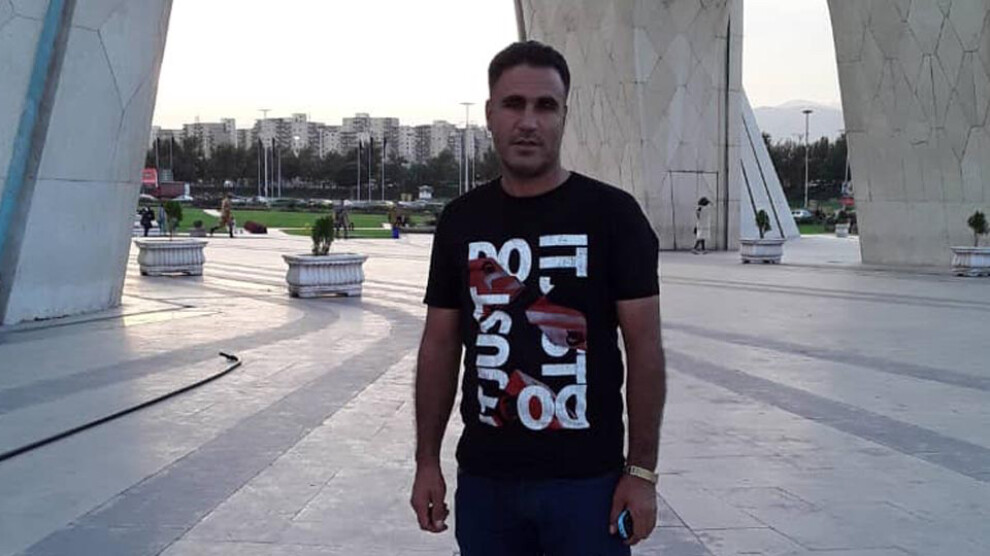Iran’s Supreme Court upholds death sentence for Kurdish political prisoner
Branch Nine of the Supreme Court has upheld the death sentence of Hamid Hosseinnezhad Heidaranlou, a Kurdish political prisoner from Chaldoran.
Branch Nine of the Supreme Court has upheld the death sentence of Hamid Hosseinnezhad Heidaranlou, a Kurdish political prisoner from Chaldoran.

Branch Nine of the Supreme Court has upheld the death sentence of Hamid Hosseinnezhad Heidaranlou, a Kurdish political prisoner from Chaldoran.
The sentence, originally handed down in July 2024 by the Islamic Revolutionary Court of Orumiyeh (Urmia), presided over by Judge Najafzadeh, was based on charges of “armed insurrection” (baghi) for alleged membership of the Kurdistan Workers’ Party (PKK), according to the Kurdistan Human Rights Network (KHRN).
His appeal, submitted in August 2024, was reviewed by the Supreme Court, which upheld the death sentence without considering his defence.
KHRN reported that Hosseinnezhad Heidaranlou was officially informed of the Supreme Court’s decision on 26 March while in Orumiyeh Central Prison.
Arrest and legal proceedings
Hosseinnezhad Heidaranlou was arrested along with several Afghan nationals by border guards at the Chaldoran border on 13 April 2023 and taken to the Chaldoran Border Guards Detention Centre, where he was interrogated for several hours before his detention order was changed to bail.
However, the bail was not accepted as an arrest warrant was issued at the request of the Ministry of Intelligence of the Islamic Republic of Iran.
He was then transferred to the Ministry of Intelligence’s detention facility in Orumiyeh.
A source had previously told the KHRN that Hosseinnezhad Heidaranlou had been held in the ministry’s detention facility for 11 months and 10 days, during which time he was subjected to severe physical and psychological torture in order to force him to confess to his “involvement” in an armed clash between PKK forces and Iranian border guards, a confrontation which resulted in the deaths of eight border guards.
The source further stated that throughout his detention, Hosseinnezhad Heidaranlou was only allowed two brief phone calls with his family and was denied visits and access to legal representation.
For approximately eight months, he was subjected to intense pressure and torture by intelligence interrogators and the investigating officer, identified as Estiri. Eventually, he was forced to sign pre-written statements prepared by interrogators, despite being illiterate and unable to read the contents.
During interrogations and court hearings, Hosseinnezhad Heidaranlou, who was denied the right to appoint his own lawyer due to objections from the Ministry of Intelligence, denied all charges and insisted that his confessions had been extracted under torture.
He also provided documentary evidence that he was travelling to Turkey with his family on the day of the armed clash between PKK fighters and Iranian border guards. However, the Islamic Revolutionary Court of Orumiyeh, presided over by Judge Najafzadeh, rejected the evidence and sentenced him to death on charges of “armed insurrection” (baghi) through alleged membership of the PKK, in a hearing that lasted only a few minutes.
It was reported that in a fabricated case against the political prisoner, the Ministry of Intelligence claimed – without providing any verifiable evidence – that he had developed animosity towards the border forces because of the killing of his brother-in-law, Mostafa Nouri, by Iranian border guards in 2015 while he was engaged in cross-border trade.
As a result, he was accused of collaborating with PKK forces during the clashes between them and the border guards.
Hoseinnezhad Heidaranlou, born in 1985 and a father of three from the village of Segrik in Chaldoran, had worked as a fuel porter and border trader in recent years.